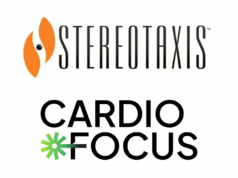
More than 100 countries have now approved Boehringer Ingelheim’s Pradaxa for the prevention of stroke and systemic embolism for adult patients with non-valvular atrial fibrillation. The 100th approval was announced by the Jordan Food and Drug Administration. Further regulatory approvals for Pradaxa are expected to be received in the near future, the company states.
According to a company release, the continuous flow of regulatory approvals from health authorities all over the world reaffirms the overarching benefits delivered to patients by the treatment and supports previous announcements by the US Food and Drug Administration and the European Medicines Agency. Pradaxa, in addition, offers the most robust clinical data set and the longest real-world experience for stroke prevention in atrial fibrillation compared to any of the novel oral anticoagulants, providing ongoing support for physician use of the novel treatment.
The efficacy and safety profile of Pradaxa was established in the RE-LY trial, one of the largest stroke prevention clinical studies ever conducted in patients with atrial fibrillation. Pradaxa 150mg bid is the only novel oral anticoagulant study which has shown a significant reduction in the incidence of ischaemic strokes in patients with non-valvular atrial fibrillation compared to warfarin, offering a relative risk reduction of 25%.
With over nine out of ten strokes suffered by patients with atrial fibrillation being of ischaemic type, protection against ischaemic stroke is the key clinical benefit that should be achieved by anticoagulant treatment.
“Passing the landmark 100th approval of Pradaxa for stroke prevention and with still more on the horizon, we come close to saying that this novel treatment can benefit patients around the world,” comments Klaus Dugi, corporate senior vice president, medicine, Boehringer Ingelheim. “The regulatory approval achieved in Jordan, in addition to those achieved with 100 other health authorities around the world, speaks volumes. This is a reflection of the breadth of benefits that Pradaxa offers to atrial fibrillation patients, including superior protection against ischaemic stroke compared to warfarin.”
In November 2013, Boehringer Ingelheim announced plans to initiate two large, global clinical trials evaluating Pradaxa’s efficacy and safety in stroke prevention therapy in two clinically highly relevant conditions. The RE-SPECT ESUS trial will investigate the efficacy and safety of dabigatran etexilate in patients whose first stroke was of embolic origin with unknown source (ESUS). The RE-DUAL PCI trial will evaluate the efficacy and safety of dabigatran etexilate in patients with non-valvular atrial fibrillation who have undergone percutaneous coronary intervention with stenting. The trials are scheduled to begin enrolment in mid-2014 and early 2015, respectively, and will form part of the extensive RE-VOLUTION clinical trial programme.
A large programme to gather real world data in clinical practice, the GLORIA-AF Registry Programme is running as one of the largest registries in newly diagnosed patients with non-valvular atrial fibrillation at risk for stroke. GLORIA-AF is designed to investigate patient characteristics influencing choice of antithrombotic treatment for stroke prevention in atrial fibrillation and to assess the relative long-term effectiveness and safety of dabigatran etexilate vs. warfarin. It is expected to provide meaningful knowledge on the global role and use of antithrombotic treatments for stroke prevention in patients with non-valvular atrial fibrillation across different regions of the world.









